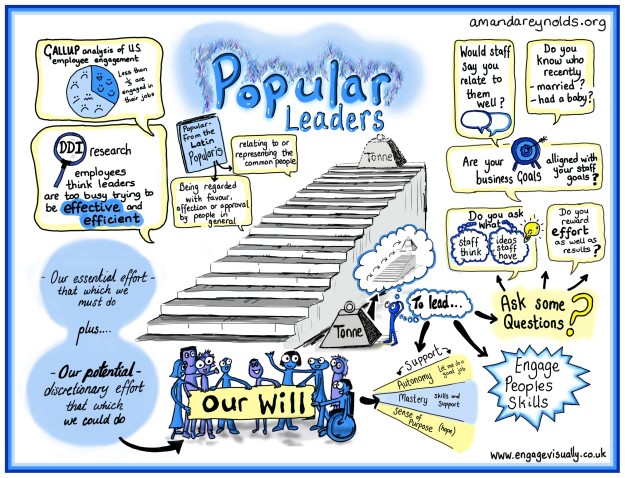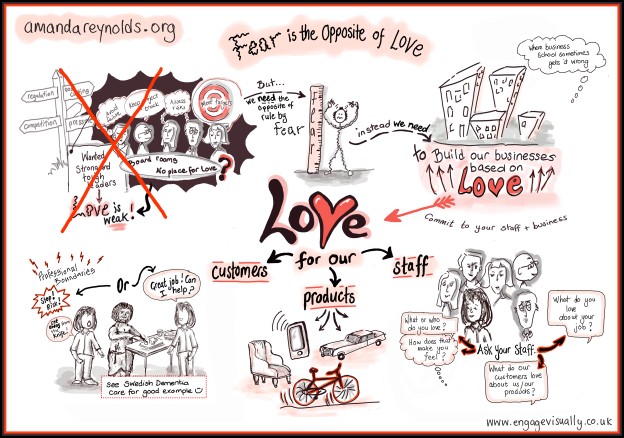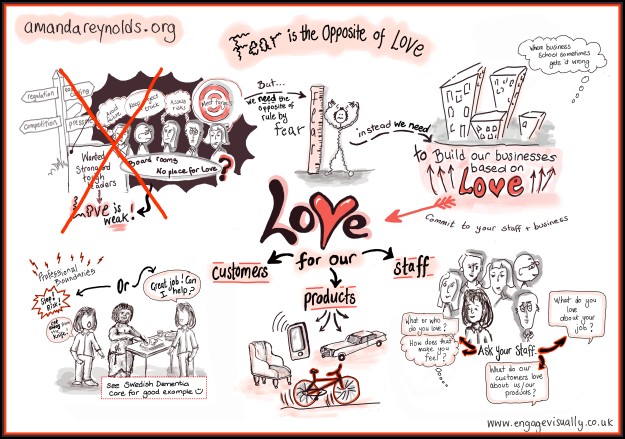Welcome to my blog, one in a series exploring leadership characteristics. Here I draw on my own leadership experience and my work as an executive coach to share with you my thoughts on what makes for a great leader. I consider there are a number of leadership characteristics a leader needs to display and work on to be more than average. I want in this blog to focus on the theme of resilience in leaders and leadership teams. I have developed this blog from a speech I gave to young women at the Norwich High school for Girls. Strengthening resilience is important at any age and in any area of responsibility.
In my work as a leadership coach I spend most of my time with women and men in their thirties, forties and fifties who are at the top of organisations. They often struggle as leaders with bad habits they have learnt over the years and ways of thinking that don’t help them to be effective at work or in life. I am not promising any magic solutions but I will share with you some of the learning and research that can help you on the road to being more resilient.
I like to think of what Gandhi said when I work as a coach “As human beings, our greatness lies not so much in being able to remake the world – that is the myth of the atomic age – as in being able to remake ourselves.”
So why do we need to remake ourselves or grow resilience? Well in essence because life is about facing new and often relentless change and challenge. The paradox is that as we get more successful and take on more senior roles the challenges get more complex and require more of our own self to deal with them.
You know what I mean, at the end of the day you get home and get asked how you feel, “I feel rung out”, “the day took everything from me”, “I can’t begin to tell you the nightmare of what we are dealing with.” Then secretly in the dead of night, with just your own thoughts you might say “I have no idea how to do this” or “I’m going to fail.” Your heart races and then all too soon its 6am the alarm goes off and out into the world of work you go again. But have you rested? Have you recovered? Are you stronger? Are you resilient enough? Welcome to the world of the leader and you are not going to quit but how do you keep going?
This is where you need resilience and you need to grow it and keep growing it. If not, you will burn out. We don’t like to talk about being burnt out but I see it too often in the corridors of power: “Maybe if I had not been so stressed on the weekend or worked so hard I could have saved my marriage, had better health, drunk less.”
Now, I can’t save your marriage but I can give you some hints to how you can be stronger and more able to cope with pressure and that might help your marriage…or it might not. BUT if you focus on growing resilience you will be a stronger person or as I like to say “the best version of yourself”.
What is resilience? I like this quote from Hara Estroff Marano, Editor-at-Large for Psychology Today, wrote in her article “The Art of Resilience”:
“At the heart of resilience is a belief in oneself—yet also a belief in something larger than oneself. Resilient people do not let adversity define them. They find resilience by moving towards a goal beyond themselves, transcending pain and grief by perceiving bad times as a temporary state of affairs. It’s possible to strengthen your inner self and your belief in yourself, to define yourself as capable and competent. It’s possible to fortify your psyche. It’s possible to develop a sense of mastery.”
I can guess what you might be thinking now as it’s the prevailing thought that we have had for many years in the West. You think some people are born happier, some more sad and then life happens to us. These life experiences can help us be happy and sometimes our life experience can bring us down. Some people are just luckier in life than others, aren’t they?
All of this has some truth as a baseline but those patterns are not fixed and we can all learn happiness and strategies that make us more fulfilled in life. That’s great news isn’t it? We are not stuck where we are, with what we have been born with, we can take control and we can make a difference to our level of happiness. As Gandhi suggested we can REMAKE OURSELF. Also there is something uncanny in struggle as it can often make you stronger.
I believe with the right mindset we can all achieve a great deal more as individuals and as leaders and make a real difference to our customers and staff. BUT like athletes before they enter the Olympics you must train your resilience levels NOT just concentrate on doing the job or learning the technical skills as you lead in organisations. I can’t tell you in this blog post everything about emotional resilience and we will just touch the tip of the iceberg. But I want to give you a framework you can work on and practise. It will require practise as resilience is a work in progress and there are no short cuts here.
My life also has had some great highs and lows. I had a difficult start in life and was made homeless at 17. It’s not how anyone would choose to start adult life is it? But I learnt some lessons that I have carried into life:
- You can always start again
- Take responsibility for your own growth
- Surround yourself with good people who believe in you
Some pretty famous women have faced much greater real life difficulties at the start of their life and overcame them and became a huge success in their field. Like Rhianna – alcoholic and abusive father she says at 13 music saved her, Charlize Theron another abusive father and she witnessed her mother shoot him dead as he attacked them when she was 15.
They remind me you can start again, you can overcome difficulties and you can become stronger. Your adult life too can throw you a curve ball. We can think of J K Rowling, a rejected single parent and grindingly poor on welfare. Now a billionaire and Sheryl Sandburg, a Silicon Valley CEO (and so was her husband) then he fell off a running machine two years ago and died leaving her alone with young kids.
That’s essentially the myth isn’t it? We look at people on the outside and they seem successful, they seem to have it all. We think that to have a successful life it should be easy, we should just sail through life and everything we reach for falls into our grasp. We all want to protect ourselves, to be wrapped up in a safe box filled with cotton wool. Our friends and families want that too and to give us a great life free from difficulties. But comfort does not make us strong. Testing times and how we learn from them are often what enable us to grow.
So how might I know I’m not resilient enough? The second myth I want to bust is that resilience is about being tough. Those tough bosses definitely generate the need for resilience in their staff BUT it’s not toughness I’m looking at here. I think that the tough boss personality is nearer a psychopath than a healthy human being. Reacting is basic survival or the fight or flight instinct. The need to work on your resilience shows that you are human and the more you work on your resilience the more you will also positively impact your workplace climate and that encourages others to talk about and work on their resilience too. That’s the third myth showing you are working on resilience is a weakness. The opposite is true as it strengthens you and for those around you. But, of course its threatening for those living under the veneer of tough isn’t it?
So, resilient people do react to stress and pressure and it’s their ability to bounce back that sets them apart. A healthy amount of resilience is a sign of good mental health. The next myth is the corporate culture one of lean in, take on more, try harder and work longer. The research shows you are more likely to be resilient by developing strategies OUTSIDE of work than you are by trying to be stronger IN work.
Growing resilience is strange and exciting and we can see the effect of it now on MRIs. As the MRI will show in real time how we react in the moment to situations. The work by Richard J Davidson & Sharon Begley from their book and research in “The Emotional Life of your Brain” demonstrates this beautifully. They show how its incremental, that our resilience to the small blips is a great predictor of our resilience to the big stuff. So the phrase “don’t sweat the small stuff” really is quite profound in the field of resilience study.
Maybe their book should be called “the brain bounces back” rather than the emotional life of your brain. Because that’s what we are after here, the ability to bounce back from setbacks. So, like any muscle it’s about the recovery time of your brain that shows your resilience.
Try and think about a difficult situation recently and think about how it made you feel both at the time and after. Not just a big event like a death or a divorce but a car pushing in front of you, the boiler breaking down so you could not have a hot shower or being really late for an important meeting because the train was delayed. Remember how we react to small stuff is as important to be aware of as the big stuff.
Some of these signs might be familiar:
Physical responses can include:
Tiredness, headaches, ‘butterflies’ in the stomach, indigestion and nausea, neck ache, heartburn, allergies, skin problems, shallow breathing, blurred vision, aching muscles or palpitations.
Mental responses can mean you may:
Be more indecisive, find it hard to concentrate, become forgetful, have feelings of inadequacy or low self-esteem.
Emotional responses can mean you are likely to:
Get irritable or angry, be fearful, feel numb, get embarrassed, be hypersensitive, get tearful, or feel drained and listless.
Behavioural responses can mean you may:
Find it hard to sleep, change your eating habits, focus too much on work, smoke or drink more, avoid friends and family or experience relationship problems.
Now ask yourself honestly “how long did I take to get over that situation.”
So, what does a resilient person appear like then? well they are more likely to demonstrate the following traits:
- They know their boundaries
- They keep good company
- They cultivate self-awareness
- They practice acceptance
- They are willing to sit in silence
- They don’t have all the answers
- They have a menu of self-care habits
- They enlist their team
- They consider the possibilities
- They get out of their head
Now take a minute to reflect and ask yourself:
How did I do thinking about a situation that didn’t go well for me?
How do I react to pressure or difficulties what does my body tell me?
How do I think I do on the traits of resilient people?
Now take a deep breath and whatever you feel like you are doing in terms of being resilient right now don’t worry, you can always get better. Don’t beat yourself up and instead use these insights to set goals to improve. Resilient people have SELF CARE HABITS looking at the research and best practice available I have devised what I call an Emotional Buoyancy Plan or my list of self-care habits.
I suggest you try and populate each one of them. On your own is fine but it’s a great tool to use with your coach or do it with a partner, friend or teenagers (make sure it’s someone who will take it seriously and give you honest feedback though!)
Ask yourself in which of these categories am I already good? what happens when I don’t practice that habit? sleeping enough for example and which things do I never do?
The aim is to think about what can I do more of? and where do I need to start something in the area you know you are not working on yet.
MY BUOYANCY PLAN
I can thrive if I remember to practice these things:
| I will TALK about how I feel | I will BUILD healthy friendships |
| I will LOOK AFTER my physical health | I will love SLEEP & EAT WELL |
| I will practise being GRATEFUL
|
I will practise my FAITH or MINDFULNESS |
| I will do something just for the LOVE
|
I will BE CURIOUS & learn something new |
| I will GIVE MYSELF TIME TO RELAX | I will GET TO KNOW my moods & triggers |
| I will be KIND by learning to like myself | I will SAY NO to stuff or people that do not help my well being
|
If you want to think more about gratitude or curiosity I have written blogs on these areas and you will find summaries on my website. If you struggle with the other areas these are rich topics to work on with a coach, they can help you develop strategies to improve in these areas.
If you would like to talk to me directly about supporting you as a coach or speaking as a key note or workshop facilitator, then do get in touch.
Finally, Sheryl Sandburg speaking after husband’s early death “What I want to talk about today is what you do next. About the things you can do to overcome adversity no matter when it hits you or how it hits. The easy days ahead of you will be easy. It’s the hard days — the days that challenge you to your very core — that will determine who you are. You will be defined not just by what you achieve, but how you survive. You are not born with a fixed amount of resilience It’s a muscle. You can build it up and then draw on it when you need it. And in that process, you figure out who you really are. And you just might become the very best version of yourself.”



